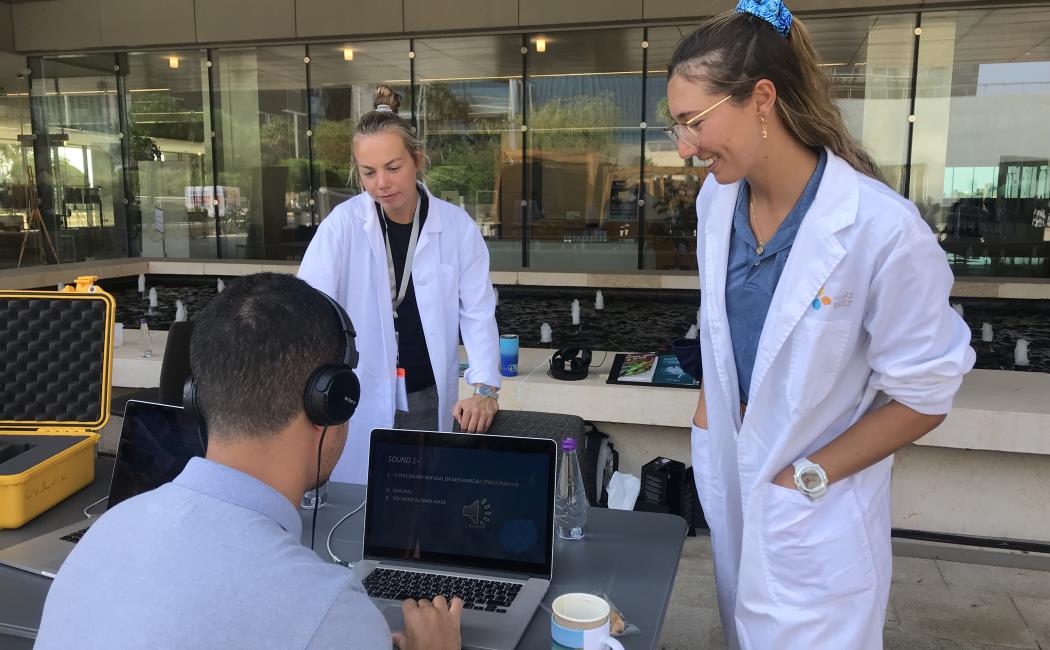
30 November, 2021
“The pandemic allowed us to reflect and value how important human interaction is, especially with regard to disseminating science. I want to take this opportunity to celebrate the excellent science and engineering happening at KAUST and provide a mechanism for those involved to showcase their outstanding research in a week-long event through presentations, demonstrations and discussions. We have purposely chosen the theme Sustainability: Science for the Future, to provide a positive outlook resonating across all divisions. I strongly encourage you to participate, with particular emphasis on our early career and newly arrived faculty and researchers.”
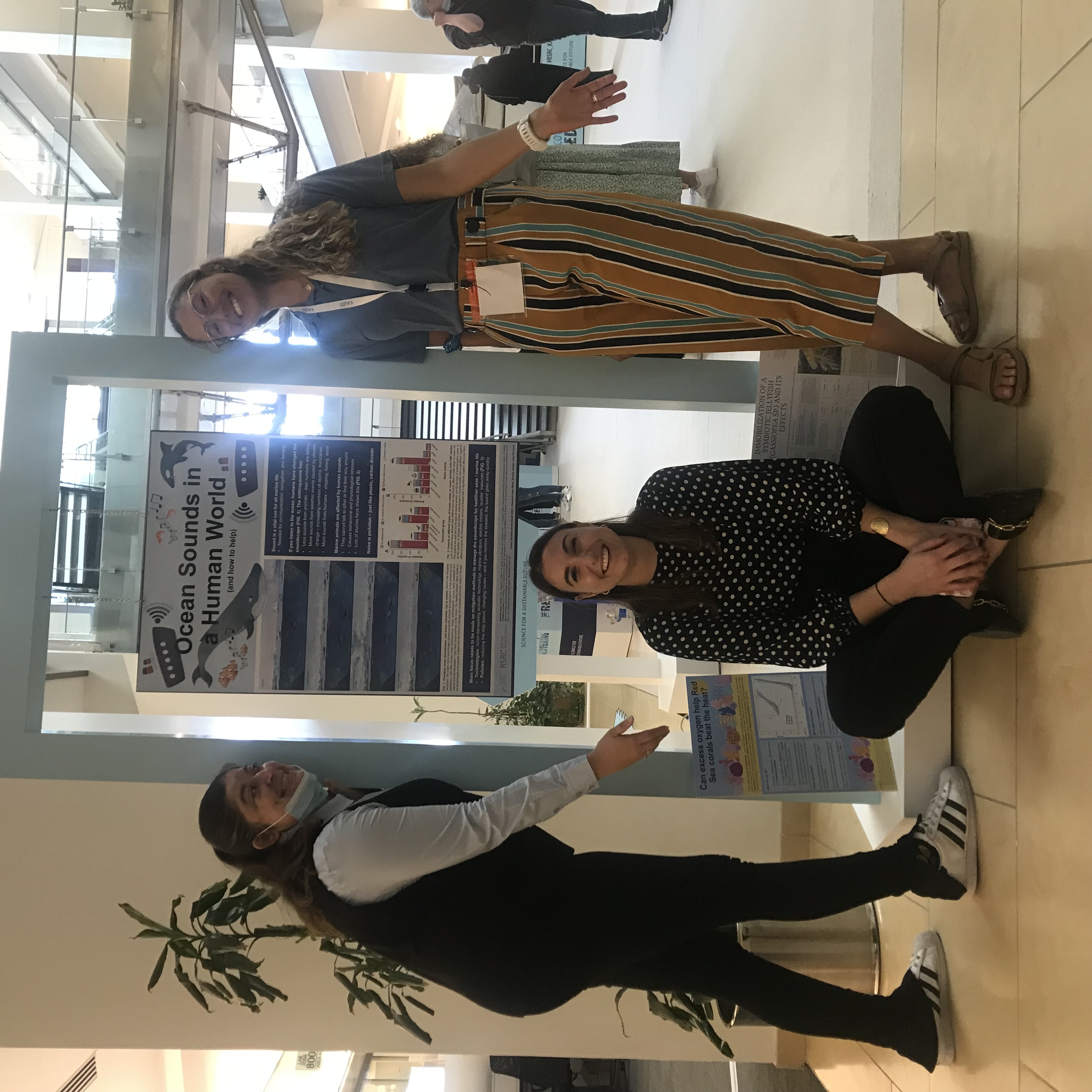
Anieka Parry, Silvia Arossa, Michelle-Nicole Havlik
This above quote by Professor Donal Bradley, Vice President for Research, demonstrates exactly what the 2021 KAUST Research Open Week is all about - getting the local community, school children and other members interested and engaged in science - even more pertinent now when the younger generation have to deal with both climate change and a global pandemic!
And with living next door to such a world-class institution (with all its different faculties); there is a plethora of opportunities literally on one's doorstep! Thus far, there have been racing simulations with McLaren, an ROV-building workshop in The Spine, and a VR-marine-experience-megafauna-game in the RSRC (which the writer of this piece can attest was AMAZING).
On the 30th November, being the 'Environment' strand of Research Week, it was the turn of RSRC students to present their research. TAJRC student Michelle-Nicole Havlik showed several classes of children her go-to research tool - hydrophones - as they are important in recording the sounds of the ocean. This is very useful to see how soundscapes change over time, both in terms of higher levels of human (anthropogenic) sounds, and decreases in natural ones. Human sounds can cause behavioural and physiological harm to marine creatures, so levels of noise need to quantified and mitigated. After all, noise is a stressor in the sea, just as plastic is!
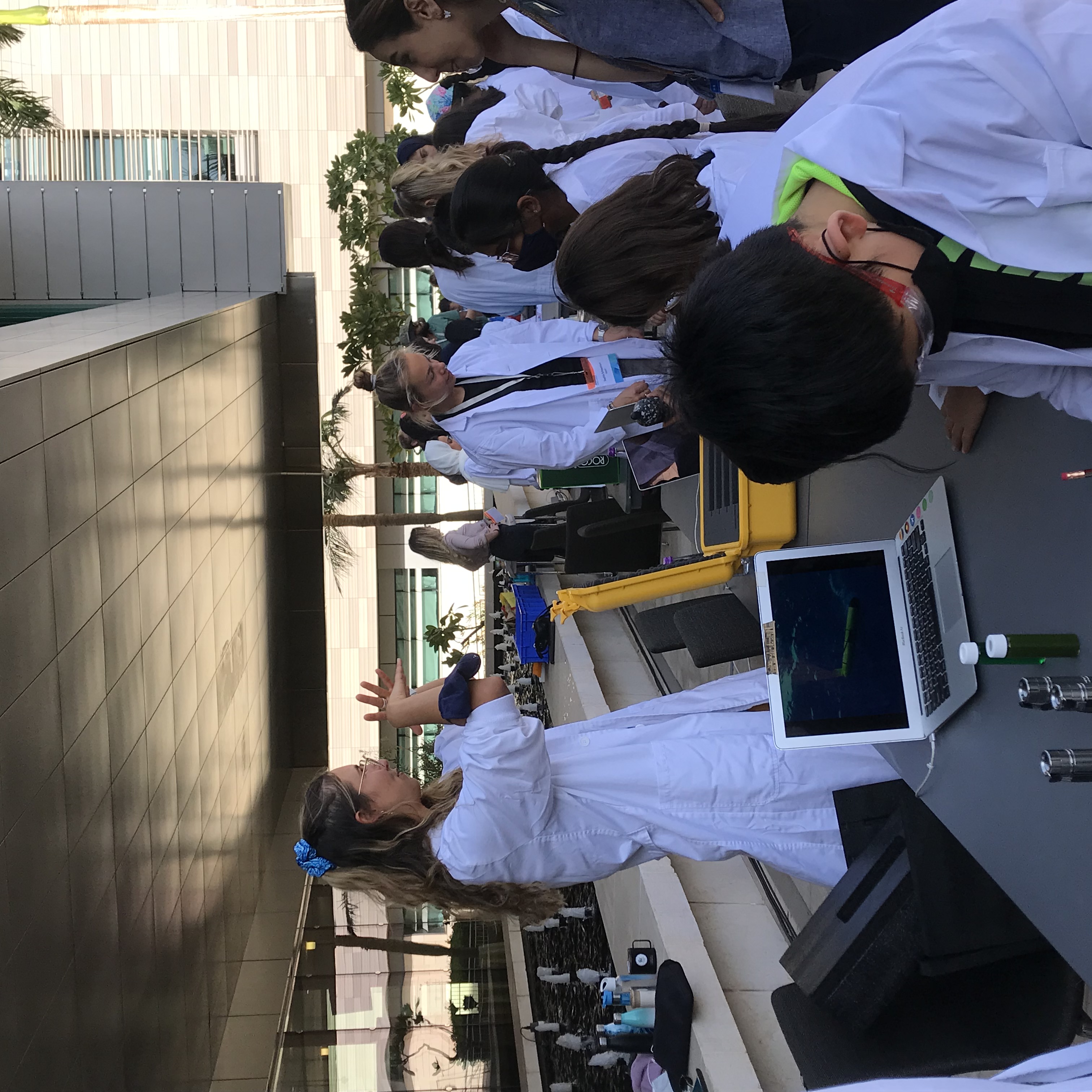
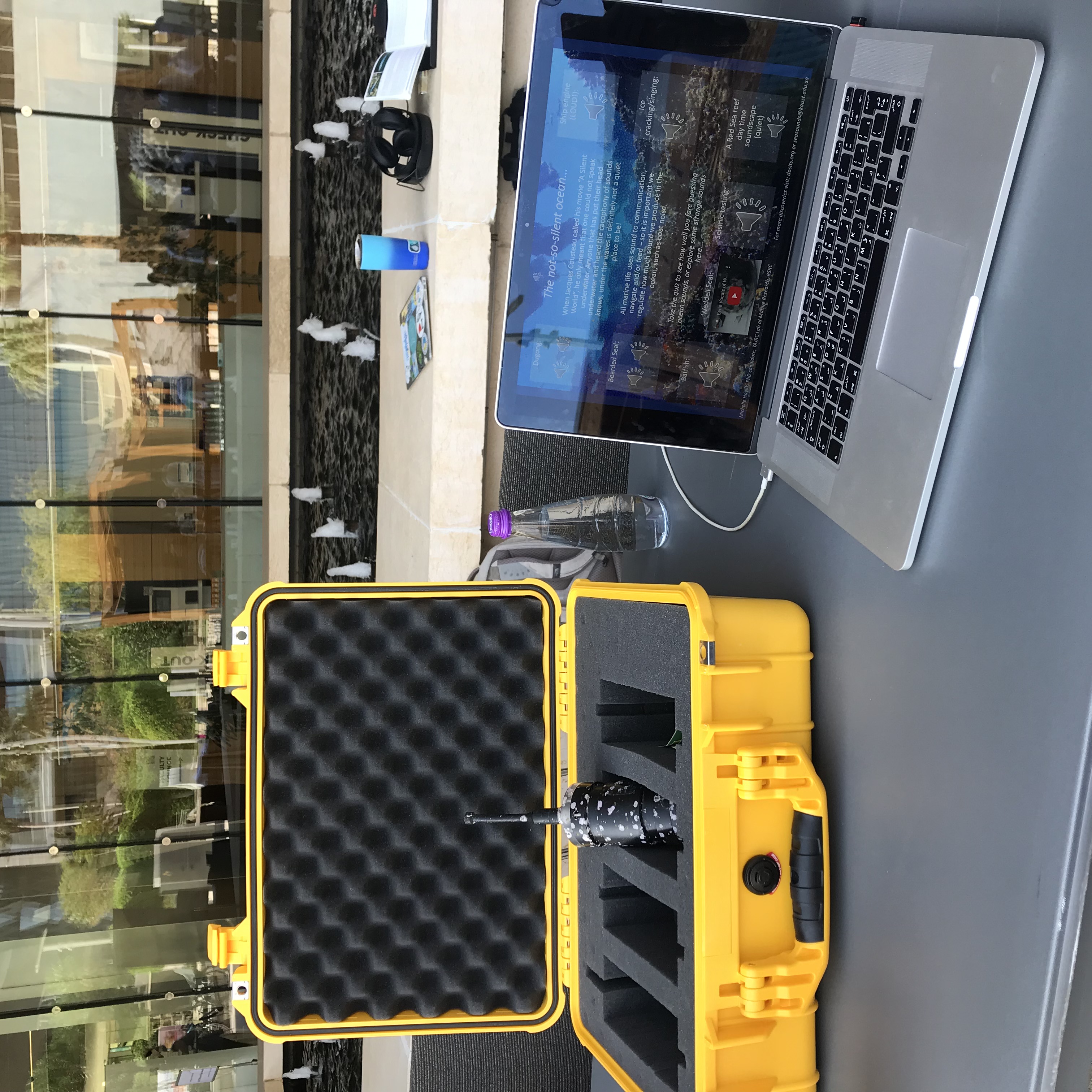
Hydrophones and soundscape science on The Spine
Michelle also presented her research at an interactive poster session, as part of an open-doors RSRC event, along with two other TAJRC students, Anieka Parry and Silvia Arossa. Anieka studied the ways in which we can help corals withstand the effects that will come with climatic changes - for example warmer waters and bleaching. Can giving corals higher amounts of oxygen help them beat heat stress?
Silvia investigated the ways in which we can get jellyfish to keep nice and still in the lab - to effectively and humanely immobilise creatures so we can study them! She looked at the use of a compound called Magnesium Chloride on jellyfish in the lab. It is very important to help develop safe and ethical practices when conducting research.
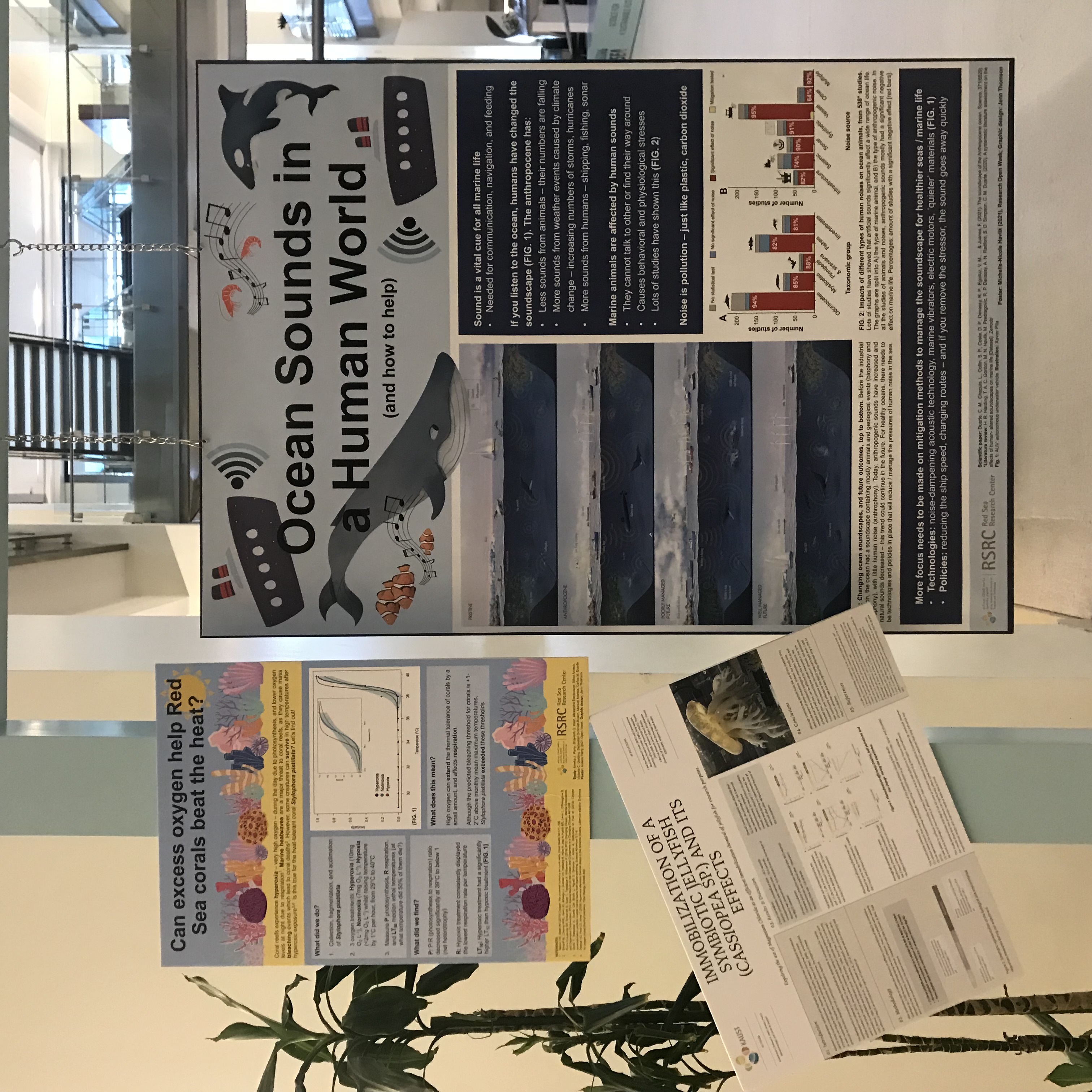
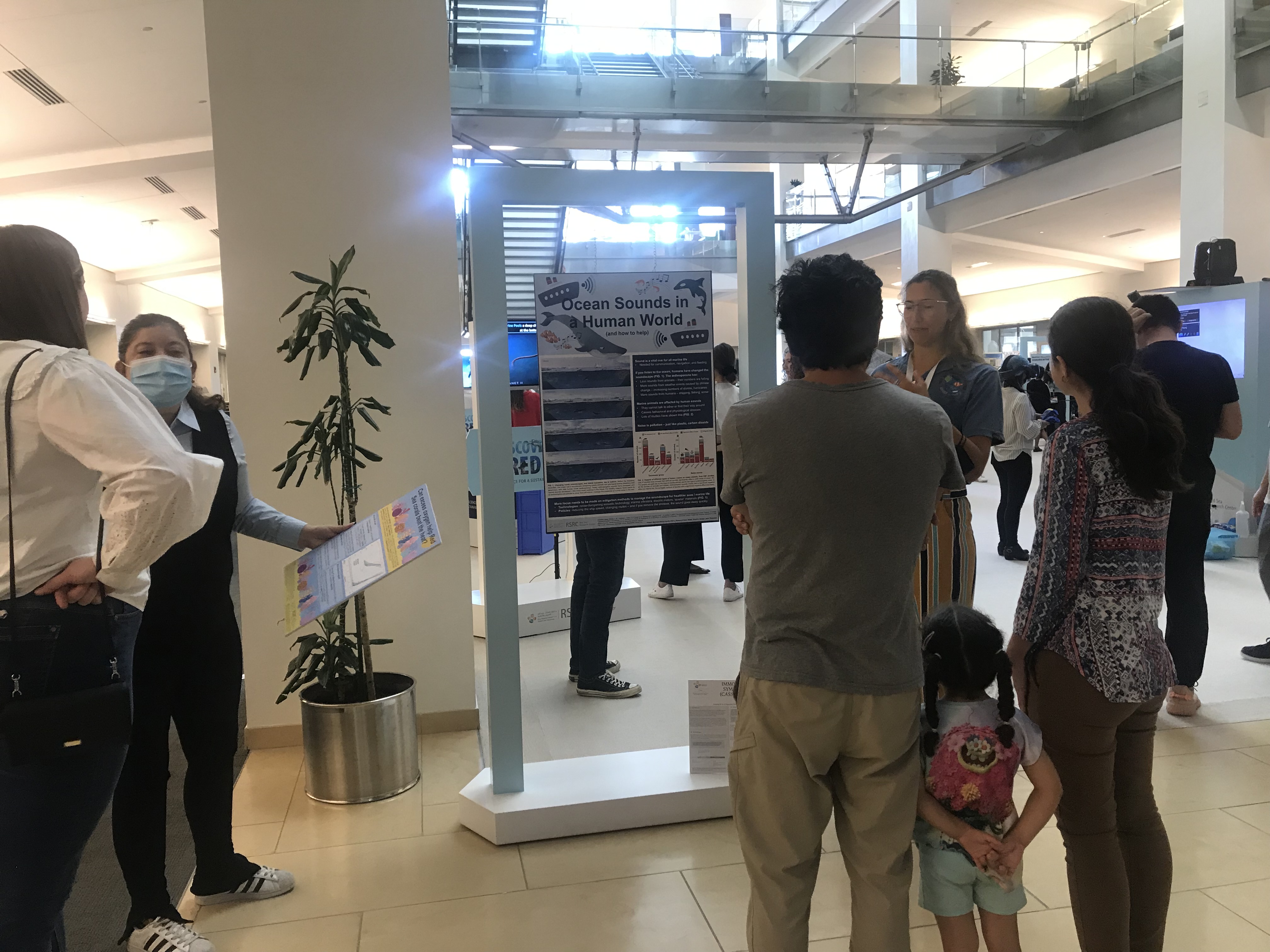
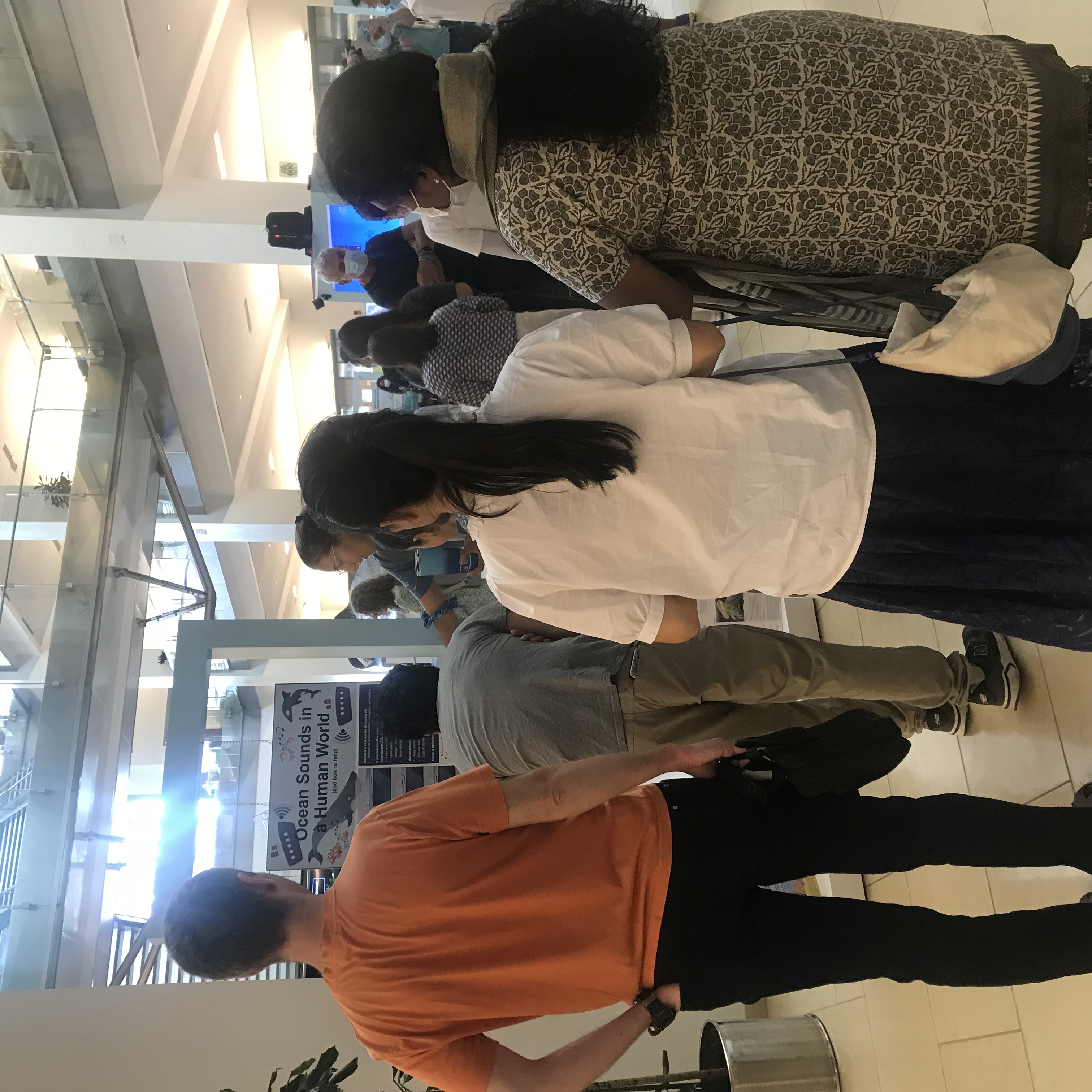
The posters and presenting - our stand became very popular!
Well done everyone for your fabulous outreach work!
All photos: Jenn Thomson